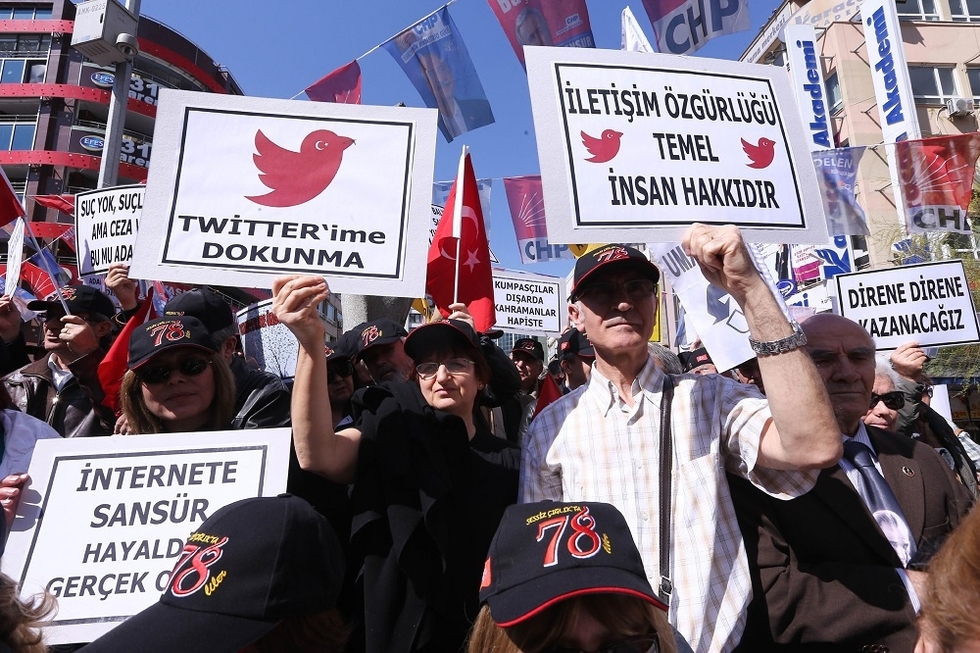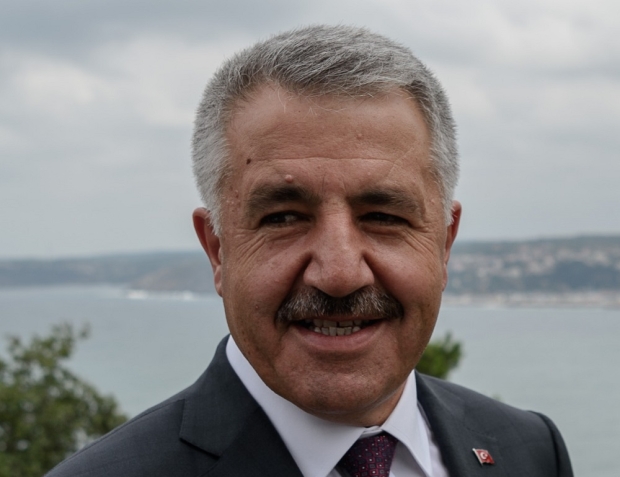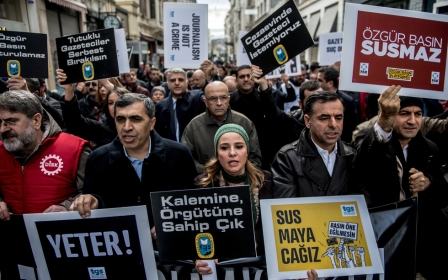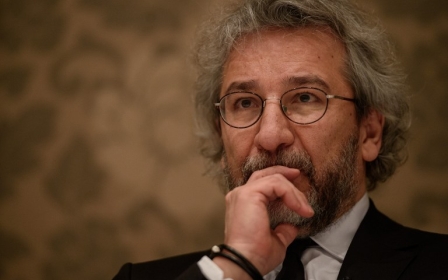Turkey versus the internet: AKP moves to control last refuge of independent media

ISTANBUL, Turkey - The Turkish government is looking to expand its control over the internet and social media, leading to concerns that it intends to deprive independent journalists of their last refuge – and more broadly to censor programming that differs from its own world view.
A draft bill submitted to parliament on 2 February seeks to subject all web-based broadcasts and platforms, domestic or international and in any language, to Turkish regulatory control and conditional upon a licence issued by the Turkish media watchdog RTUK.
Requirements for obtaining a licence, apart from hefty fees, will include a security screening conducted by Turkish police and intelligence.
It is clear that this move is being prepared to target independent media
- Unsal Unlu, journalist
The passage of the draft bill into law by parliament will be a procedural formality, lasting up to six months, in the wake of an official right-wing election alliance between the ruling Justice and Development Party (AKP) and the Nationalist Movement Party (MHP).
At risk will be a number of journalists producing low-cost and often crowd-funded news programmes on webcasting platforms such as Periscope.
Their number has surged in recent years as mainstream organisations face pressure to toe the government line, and established journalists seek new opportunities after being sacked or leaving jobs on ethical grounds.
Unsal Unlu ended a long career in mainstream Turkish media in 2015 to begin a daily news broadcast on Periscope from his study in order to - in his words - stay true to free and independent journalism.
Unlu told Middle East Eye that the bill would destroy already severely limited individual freedoms.
"It is clear that this move is being prepared to target independent media," he said. "Everyone else is already providing news that suits the government's wishes."
He added that such independent portals were being forced to "join the herd".
"The public is also being punished by being deprived of the truth and limited to news broadcasts that are essentially official bulletins," he said.
Command and control
Celal Baslangic, another veteran journalist in self-exile in Germany, said the bill was just the latest manifestation of the AKP mentality.
Baslangic is editor-in-chief of the Germany-based Turkish-language news site, Arti Gercek, and the satellite and internet channel Arti TV.
"This [bill] just shows how low the AKP has sunk. It wants to eliminate every single opposition voice," he said.
"It is panicking and resorting to any measure because it is faced with crucial presidential elections in 2019 that it has no guarantee of winning."
He said the AKP would never succeed in silencing its opponents.
"There is no place where access to information can be fully blocked. Look at Iran. They even go around tearing satellite dishes off rooftops and arresting people, but they cannot block people from getting information," he said.
The bill also seeks to bring local brands of international entertainment sites, such as Netflix, under Turkish regulatory control.
Baslangic said that threatened to lead to the censorship of programmes the AKP finds unappealing.
For instance, images of smoking are banned under Turkish law and have to be blurred. Violations result in fines and non-payment or repeat offences could lead to access being denied in Turkey.
"The AKP not only wants to silence critical voices but wants to censor anything that shows a lifestyle that doesn't fit their narrow views. They don't want people to know or have any interaction with the world," said Baslangic.
Protecting 'national values'
Turkey's communications minister, Ahmet Arslan, has defended the draft bill and said it was not censorship but protection of national values.
He said the government had to take action if national moral values or national security were being violated.
'What constitutes a crime in the real world is also a crime in the virtual world. Freedoms are not unlimited'
"What constitutes a crime in the real world is also a crime in the virtual world. Freedoms are not unlimited," Arslan said.
"Do we have television censorship today? All programmes can be broadcast. Broadcasts can be done within the scope of values held by our people and country."
The internet and social media has become a vital area for the government as studies show most Turks now prefer them compared to more traditional media sources.
The latest available Digital News Report, prepared by the Reuters Institute and the University of Oxford, said 89 percent of people in Turkey used the internet, including social media, to access news in 2017.
Many users online are also drawn to video and audio broadcasts rather than text.
The study notes that the use of social media has fallen due to "people adopting more secure messaging apps for sharing news".
Unlu is holding out hope that the bill will be binned as the government seeks to finalise a visa-free travel deal with the EU, but said journalists would still find ways to inform the public of the truth.
Unlu's first Periscope news bulletin, broadcast in 2015, had 37 viewers. It now attracts daily viewing figures of about 20,000 and has reached two million views in total.
He also maintains a news site, which is currently not under threat from this bill.
"A government that is engaged in talks with the EU over visa exemptions should understand the negative impact of such a blow to individual freedoms. That is why I will maintain my hope until the last second," he said.
"I had to be creative three years ago, and in a way invent a new way of doing my job. But if the bill becomes law, then I will continue to do what I am doing, or at least I will try to find a way to do so."
Stay informed with MEE's newsletters
Sign up to get the latest alerts, insights and analysis, starting with Turkey Unpacked
Middle East Eye delivers independent and unrivalled coverage and analysis of the Middle East, North Africa and beyond. To learn more about republishing this content and the associated fees, please fill out this form. More about MEE can be found here.






